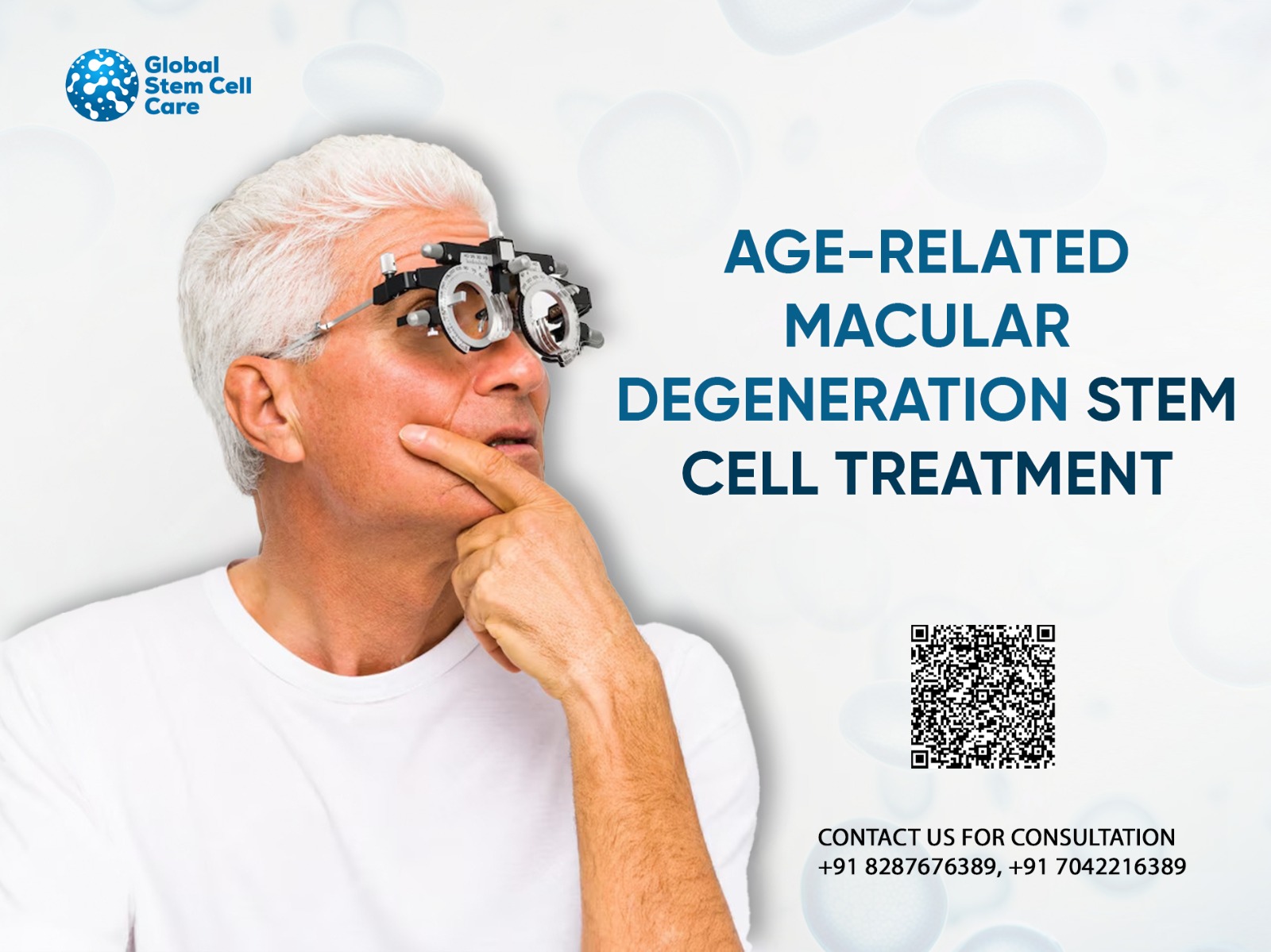Age-related macular degeneration is the primary cause of vision loss in adults above 50 years of age. Revolutionary stem cell transplant transformed this story by allowing retinal cells to be replaced. The innovation provides hope for patients suffering from AMD to have restored vision and improved quality of life. Learn how high-end stem cell solutions can lead the way to a brighter future for individuals diagnosed with AMD.
What is Age-Related Macular Degeneration?
AMD is an eye disorder causing progressive damage, mainly on the macula, that is central vision of the retina for point and detailed view. After certain periods of time, complete or blurred vision may start showing up, which is a threat as it causes difficulty with everyday activities, such as reading or identifying a face.
There are two main types of age-related macular degeneration:
Dry Age-Related Macular Degeneration: This is the more common type that is caused by the slow and gradual thinning of the macula.
Wet Age-Related Macular Degeneration: This is a less common, but severe form in which abnormal blood vessels grow underneath the retina, leading to rapid loss of vision.
Causes of AMD
Though the exact cause of AMD remains unknown, a number of risk factors exist for developing AMD:
- Age: People 50 years of age or older are at an increased risk for AMD.
- Genetics: A history of AMD within a family increases the chance of AMD significantly.
- Lifestyle: Smoking, diet, and a sedentary lifestyle are contributing factors for AMD.
- Environmental: Continued exposure to UV light or high pollution levels can also damage the retina over time.
- Medical Conditions: Some medical conditions like obesity, hypertension, and heart disease have been associated with AMD.
Macular Degeneration Symptoms
AMD symptoms usually come on slowly but can advance rapidly for wet AMD. Common symptoms include the following:
- Blurry vision, especially centrally in your visual field.
- Trouble reading small print or seeing fine details.
- Dark areas or holes in the central part of your vision.
- Distorted or wavy lines when looking at objects.
- Greater difficulty adjusting to dim light.
If you notice any of these symptoms, you should get medical attention right away.
How Can Stem Cells Help Treat AMD?
The future prospects for restoring vision in AMD are, therefore, promising through stem cell therapies. This is because stem cells have the ability to be differentiated into specific cells with the regenerative nature capable of replacing damaged tissues.
Role of Stem Cells in AMD Treatment
Replacive Cells: Through the regeneration and replacement of damaged retinal cells, stem cells restore vision.
Protective Factors: Protective factors secreted by stem cells help preserve the remaining healthy retinal cells.
Restoration of Optic Nerve: Use of stem cells from optic nerves is where this would possibly reanimate the corrupted optic nerve due to proper nerve-to-brain talk.
Types of Stem Cell Therapies for AMD
Stem Cell Transplant: Healthy stem cells are injected directly into the retina. They allow the repairing or replacement of damaged tissues.
Mesenchymal Stem Cells (MSCs): There is a presence of reduced inflammation in the retina via MSCs that also provide healing.
Retinal Pigment Epithelial Cells (RPE): These are found to be able to reverse the layer affected by AMD- the retinal layer.
The Benefits of Stem Cell Treatment for AMD
Restoration of Vision: Partial vision restoration has been proven through stem cell treatments for AMD patients.
Minimal Invasiveness: Procedures such as stem cell transplants are safer and less invasive than the usual surgeries.
Potential to Prevent Further Vision Loss: The cells repair the damaged cells and protect the existing ones, thus slowing down the progression of AMD.
Improved Quality of Life: The restoration of vision to the patient enables them to become independent and perform daily activities.
To Wrap Up
Don’t let the darkness of Age-Related Macular Degeneration dim your world. Breakthroughs in stem cell therapy now bring within reach a clearer vision. Global Stem Cell Care offers top-of-the-line consultancy with expert advice. If you or someone you love is suffering from AMD, it’s never too late. Contact us today and make that step toward clearer visions.
